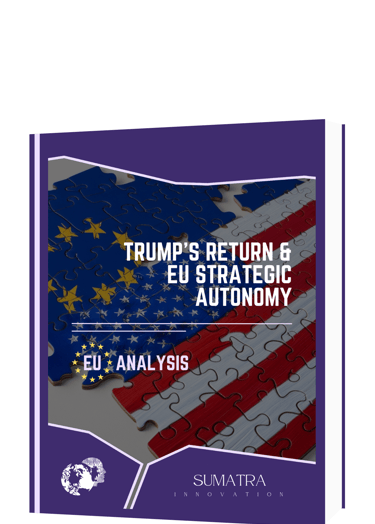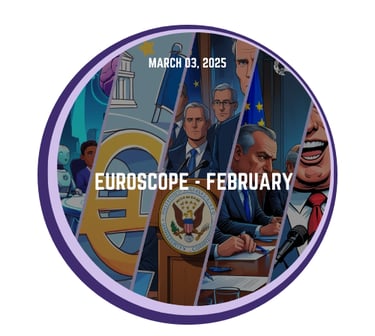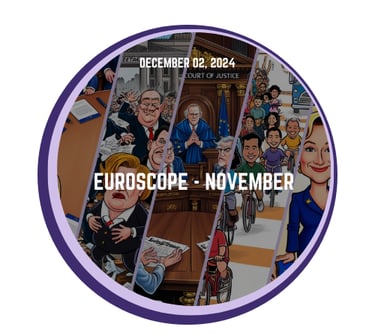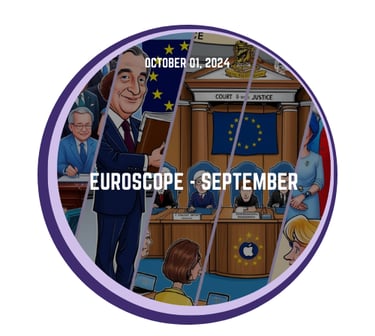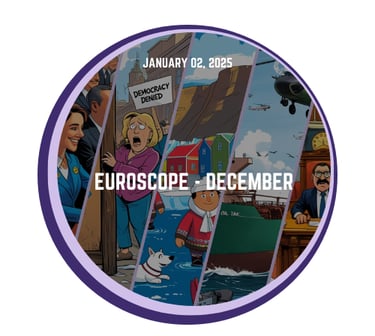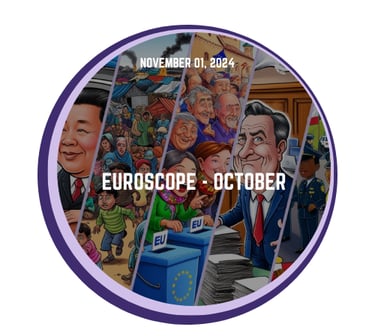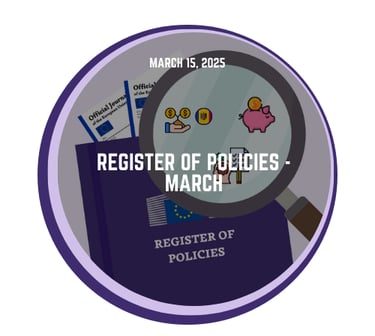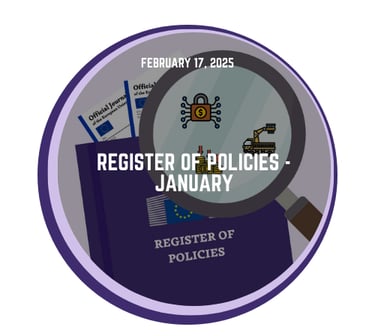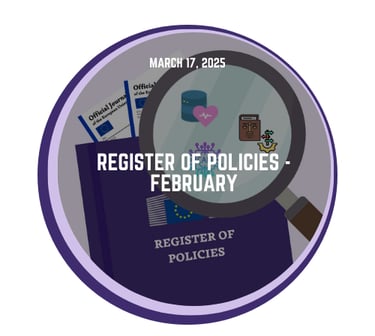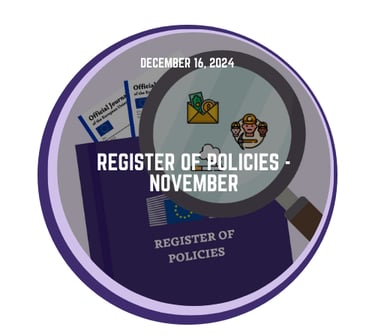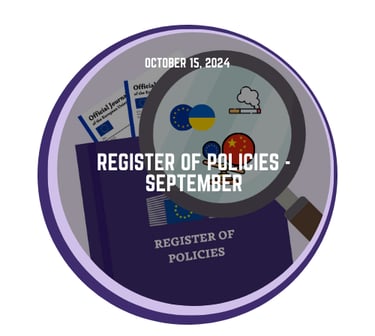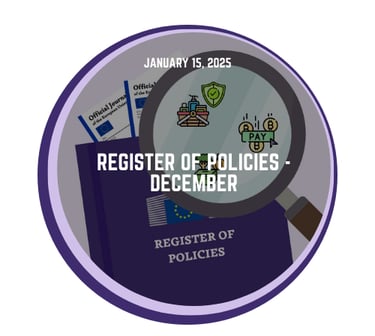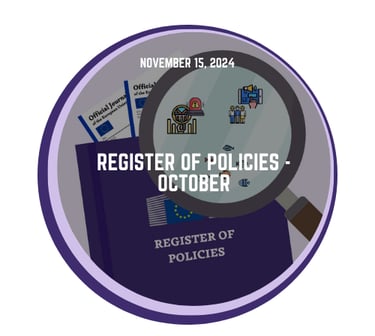Our Publications
Our Monthly Series !


Every month, we pick up policies, decisions, and events that influence the European Union, its member states and citizens. Start exploring the most important events in the European Union and the latest policy developments !
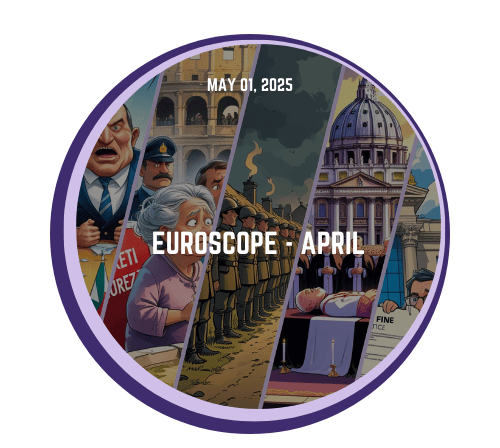

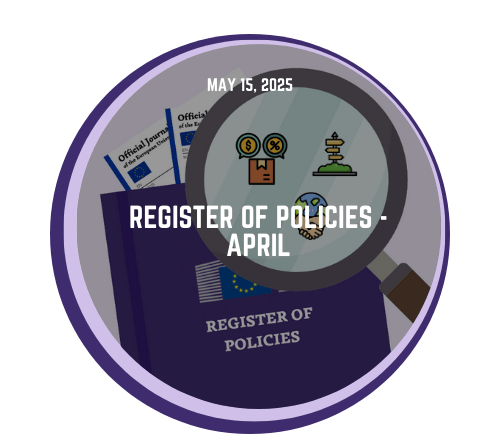

“Euroscope” is our monthly spotlight on five important news that we believe are shaping the European landscape, for better or for worse!
Each month, we break down the events into interesting insights, whether they originate from the EU or have a significant impact on its policies, institutions or global role. Our aim? To give curious minds the tools they need to understand what is happening in Europe, why it matters, where Europe is heading and how it relates to the bigger democratic picture.
“Register of Policies” breaks down three of the most relevant policy or regulatory developments being discussed at the heart of the European Union.
Each month, proposals, regulations, recommendations or directives currently in the works within the European Commission, European Parliament, or the Council of the EU, or entering into force are explained. By providing accessible, clear, and youth-friendly explanations of what the EU is doing and why it matters, we aim to provide information on the current political debates that are shaping our shared future, one policy at a time.



From previous months ...



Our Latest Analyses !


If you're looking for more than the overview provided in our monthly summaries, then this could be for you! Designed to inform and engage, our articles are meticulously researched to explore the complex realities of the European landscape.
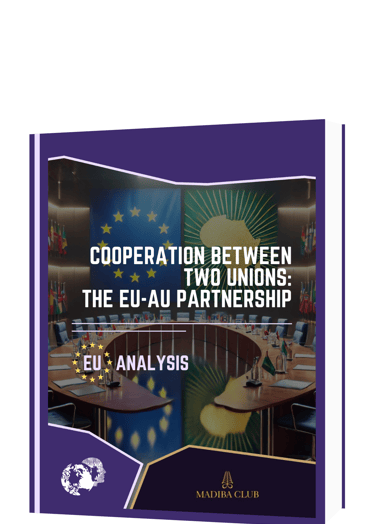

Coming soon ... !
European Union and African Union Cooperation
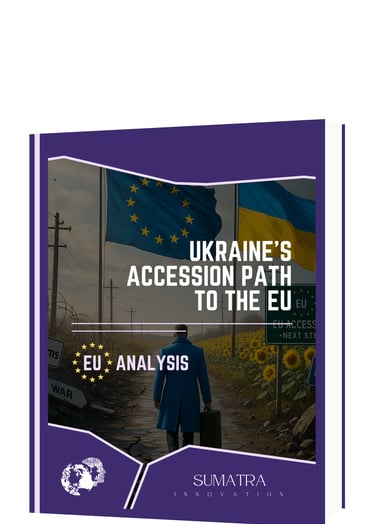

Ukraine's accession path to the EU
Ukraine's path to EU membership has been neither linear nor merely institutional. It is the story of a contested sovereignty, identity and transformation. Torn between geopolitical pressures and internal fragmentation, Ukraine has moved from rhetorical declarations to constitutional realignment, and finally to existential convergence with the EU project over the course of three decades. Yet, each phase reveals essential lessons: the limits of the EU's soft power, the cost of belated conditionality and the importance of societal action. The EU's inability to offer a credible path to membership, combined with domestic inertia and Russia's assertiveness, has left Ukraine politically unstable and democratically vulnerable.
Between 6 and 9 June, we, European citizens, voted for the new 720 Members of the European Parliament. This presented the opportunity to reshape European dynamics by electing members who share our ideas, work on our priorities, and address our concerns. With the Right coming out as the winner, many questions and concerns are being raised. This analysis provides an overview of the election results, analyse potential implications based on current political trends, and help readers understand possible future directions for the European Union.
The 2024 European elections
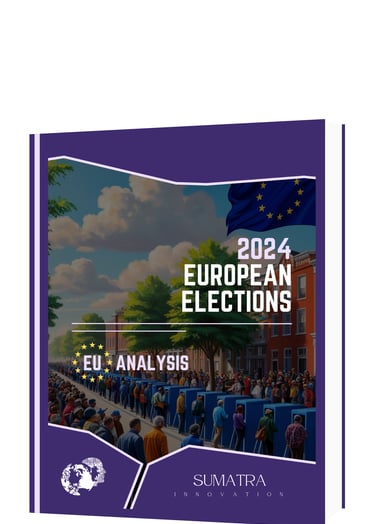

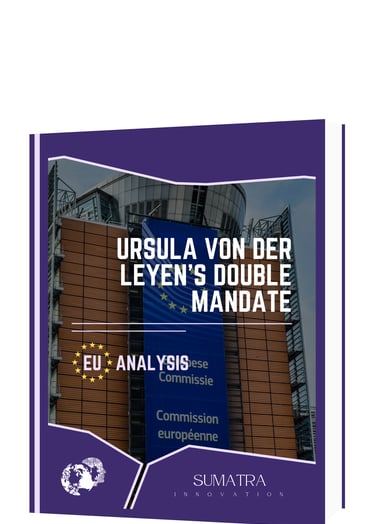

When Ursula von der Leyen became President of the European Commission back in 2019, the economic situation was more stable than in previous years, enabling the Commission to look ahead and set targets for the coming decades. Five years later, in 2024, von der Leyen got reelected for a second term as President of the EC. Has the Commission really delivered on its promises over the past five years? How far, or how close, is the Commission to its objectives? How do the new priorities relate to the previous ones? Are they coherent or contradictory? Are they realistic or unattainable? This analysis answers these questions by comprehensively assessing the coherence of the European Commission's strategic priorities over two consecutive mandates: “2019-2024 - A Union that strives for more” and “2024-2029 - Europe's choice”.
Ursula von der Leyen's double mandate
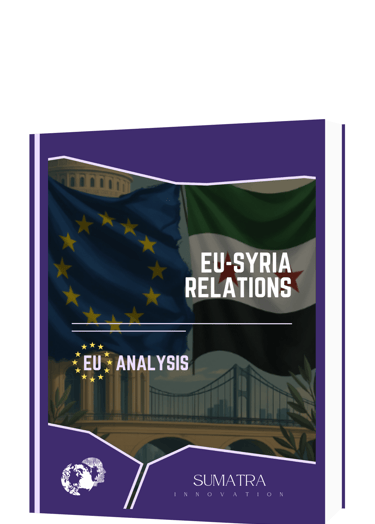

The fall of Bashar al-Assad in December 2024 has reopened a critical chapter in Syria's political history, raising fundamental questions about the country's future and its place in the international system. This turning point invites the European Union to rethink its strategy toward Syria. As the country enters a new, yet uncertain, post-Assad era, the EU is faced with renewed challenges, but also potential opportunities, to play a constructive role in its reconstruction, both politically and materially.
Rethinking EU-Syria relations following the fall of Bashar al-Assad
Over the years, the European Union has focused on prioritizing its economic and political interests, for example in the face of Brexit, Trump's first presidency, China's growth, Covid-19 or the war in Ukraine. But despite the will of EU leaders to act more autonomously and independently of third countries, the European Union's quest for strategic autonomy appears to be a difficult task given the geopolitical and globalized context of today's world. In the years to come, the EU will need to rethink, renew or strengthen its partnerships, rebalancing dependencies in strategic sectors to enable the EU to be more autonomous. Yet, with the recent re-election of Republican Donald J. Trump on November 6, 2024 and his “America First” doctrine, the long-standing transatlantic alliance could become even more fragmented.
The impact of the 2024 US presidential election on EU strategic autonomy
